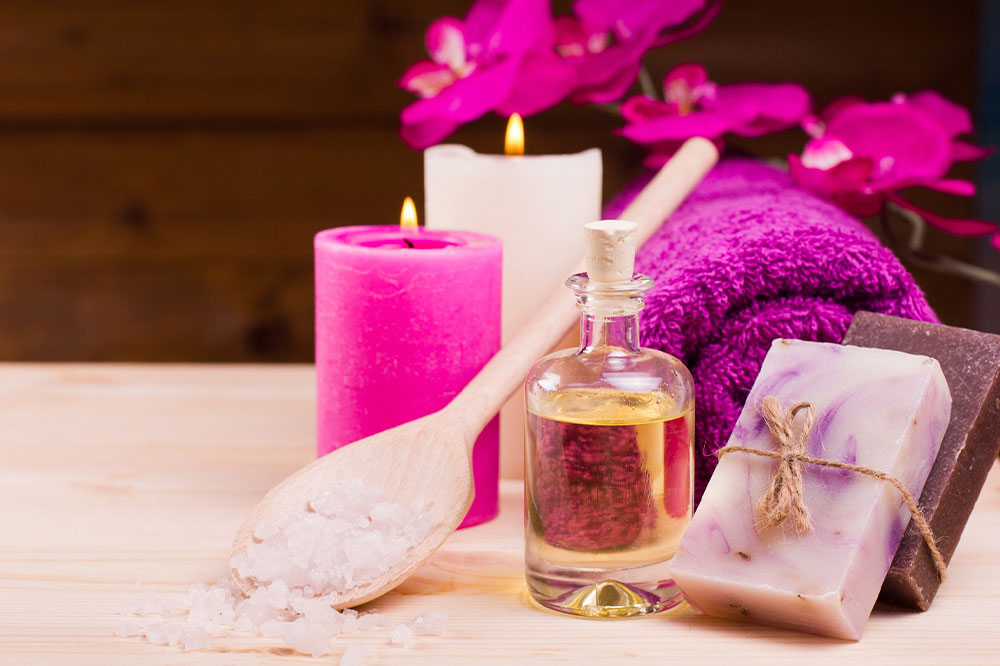7 soap ingredients that can trigger eczema flare-ups

Eczema, or atopic dermatitis, is a prevalent health condition that leads to itchy, inflamed, cracked, and rough skin. It can be triggered by various factors, including foods (like dairy, nuts, and eggs) and environmental stressors (pollen, fragrances, and extreme heat). Further, the added ingredients in some types of soaps are notorious for worsening the symptoms. To control eczema flares, one must work with a healthcare practitioner to identify their triggers and find alternative products.
Cocamidopropyl betaine
This is a surfactant or foaming agent commonly used in cleaning products like soaps. When mixed with water, it produces a thick lather to remove dirt. Although extracted from coconut oil, this surfactant can trigger symptoms of eczema around the eyes, scalp, hands, and mouth.
Added fragrances
Using a scented soap might seem like a brilliant idea, but it may trigger symptoms of eczema. According to the National Eczema Association (NEA), 8 to 15% of eczema patients are allergic to added fragrances. Soaps with fragrances may also contain dyes that further trigger the skin, leading to eczema flares. Although some products are labeled “unscented” or “fragrance-free,” they have certain chemical compounds to mask unpleasant natural odors from other ingredients. Experts recommend avoiding soaps with ingredients like cinnamic aldehyde, eugenol, isoeugenol, geraniol, hydroxycitronellal, oakmoss, and natural essential oils that are used for giving soap an appealing smell.
Antibacterial agents
Antibacterial soaps are harsher and can trigger eczema symptoms, especially if one has sensitive skin. A specific antibacterial chemical, benzalkonium chloride, is also present in no-wash hand cleansers such as sanitizers. Even a tiny amount of these products can trigger eczema symptoms.
Added preservatives like MCI and MI
Methylchloroisothiazolinone (MCI) and methylisothiazolinone (MI) are common preservatives added to skincare and cosmetic products to increase their shelf life, reduce the growth of fungi and bacteria in them, and protect their formulation. These preservatives have eczema-like side effects, including redness, itchiness, or flakiness, and must be avoided.
Propylene glycol
Propylene glycol is another common additive in skincare products, cosmetics, and food. Interestingly, it is also used in specific eczema treatments owing to its powerful moisturizing capabilities. However, propylene glycol is a potential allergen that can cause rashes and itchy skin in many people. Therefore, it is advisable to speak to a dermatologist before beginning new treatments or looking for ready-to-use eczema solutions in stores.
Formaldehyde
Formaldehyde is a common ingredient found in heavy-duty cleaning products. Although an effective cleaning agent used in tiny amounts, it can lead to eczema flares. Therefore, it is best to look for formulations without formaldehyde when buying cleaning products for the home.
Lanolin
Lanolin, a wax derived from the oil glands of sheep, is commonly found in moisturizers, creams, and ointments. While it may help keep the skin soft and supple, it may trigger an eczema flare-up.
Avoiding soaps with these ingredients can help those with eczema manage their flares better. Patients should switch to fragrance-free cleansers specially formulated for sensitive skin. These products usually do not have the above ingredients and can keep the skin clean and hydrated.





